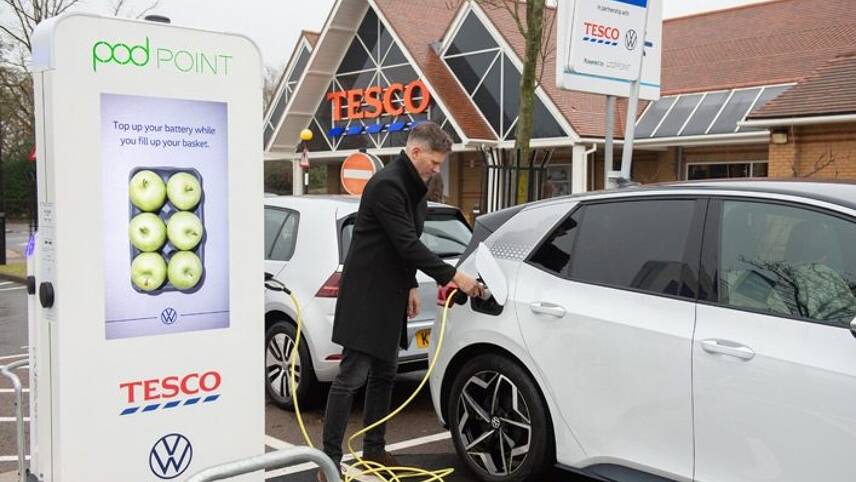Register for free and continue reading
Join our growing army of changemakers and get unlimited access to our premium content

After pledging to install EV chargers at 600 supermarket
Convened by The Climate Group and BT, the UK Electric Fleets Coalition consists of dozens of businesses who have set ambitious targets around electrifying their own road transport offerings. Collectively, the members have pledged to source more than 400,000 low or zero-emission vehicles.
Aside from knowledge sharing and encouraging other businesses to go all-in on electric vehicles (EVs), the purpose of the Coalition is also to engage policymakers to ensure that legislation supporting a national transition to low-carbon road transport. Its overarching policy recommendation is that the UK’s ban on new petrol and diesel car sales is brought forward to 2030 by the end of 2020.
Under Theresa May, the UK Government had initially introduced the ban on new petrol and diesel car sales with a 2040 deadline. Following criticism from green groups, including its own Committee on Climate Change, over the policy’s alignment with the UK’s 2050 net-zero target, Johnson moved in February to alter the deadline to 2035. 2035 is the date cited by the CCC in its initial recommendations framework on legislating for net-zero by mid-century.
“Only bold action can achieve the 50% cut in emissions the world needs by 2030, and the UK, as host of upcoming UN climate talks, must set an example,” The Climate Group’s chief executive Helen Clarkson said, referring to the IPCC’s landmark report on climate change. The report states that net global emissions must be halved by 2030 and reach zero by 2050 if the world is to have a strong chance of achieving the Paris Agreement’s more ambitious 1.5C pathway.
To support the accelerated ban, the Coalition is calling for policy support to unlock further private sector investment in rapid charging networks. The 2020 Budget saw Chancellor Rishi Sunak earmark £500m of government money for this purpose.
The Coalition is also recommending that the Government provides long-term certainty on financial incentive schemes for EVs, for businesses and individuals alike. At present, the Plug-In Grant is set to close in 2023. It is also calling for greater support for the UK’s battery manufacturing and EV manufacturing sectors.
Should these measures be enacted, SSE’s chief executive Alistair Phillips-Davies said, “the UK could become a hub of electric mobility and encourage similar actions internationally ahead of COP26”.
SSE is one of the several businesses to have joined the Coalition this week, along with Heathrow Airport, mobility firm Lime, Tesco, Heathrow Airport and E.ON. These announcements have been made to coincide with Climate Week NYC.
Policy on pause
The UK Government is reportedly receptive to a 2030 ban on new petrol and diesel car sales, with the Labour Party, Green Party and more than one-third of Conservative MPs supporting such a deadline.
Many of the national newspapers had received tip-offs that Boris Johnson would confirm the new date this week. However, this announcement is now likely to take place later this year, due to the introduction of new Covid-19 related restrictions on Tuesday (22 September).
Sarah George


Please login or Register to leave a comment.